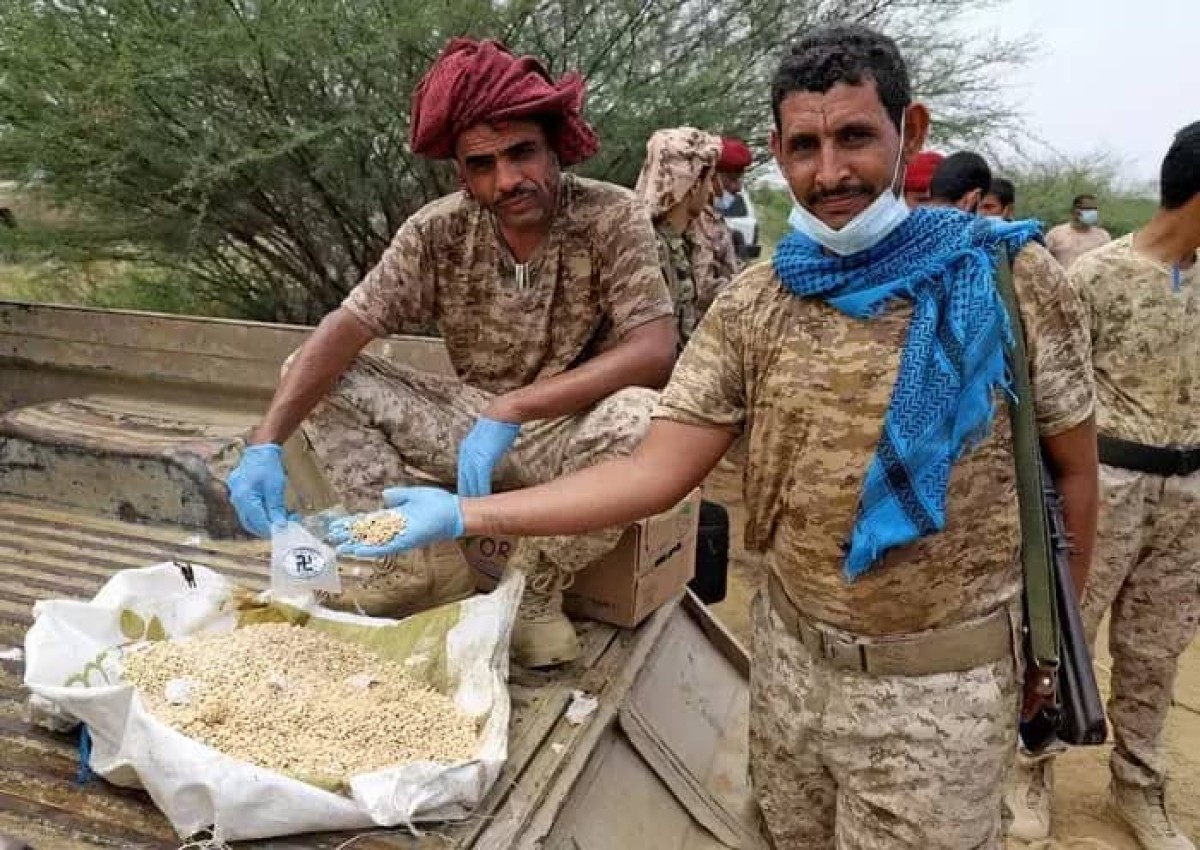"Houthi" drugs threaten the future of Yemen... a dark trade and shocking statistics


Yemeni ports under the control of the Houthi militias have become major centers for drug smuggling, posing a direct threat to Yemen's youth and society.
The drug trade is a primary source of income for the militias, which leads to the destruction of young people's minds and deviant behavior.
Despite the negative effects of drugs, which include tearing apart the societal fabric and the spread of moral and behavioral deviations, efforts continue to confront this phenomenon and confront the goals of the militias.
The city of Aden (south) witnessed the holding of the first international conference on “Drugs and their Repercussions on Youth and Societies,” which seeks to study the phenomenon of the spread of this scourge and curb its spread.
The conference, organized by the Center for Public Opinion Studies and Social Research “Madar”, in partnership with the German International University in Aden and the Aden Center for Drug Awareness, aims to put practical solutions and treatments on the table of decision-makers in the Yemeni government, to stop the threats it poses. Drugs affect the present and future of the country.
Realistic and scientific outcomes
What is striking about the first conference on the repercussions of drugs on youth and society is that it revealed frightening statistics about the spread of drugs in Yemen, and it also came up with recommendations that would be implemented and taken into account to prevent the spread of drugs in Aden society in particular and Yemeni society in general.
The conference witnessed the participation of researchers from local, Arab, and international universities, who presented 27 research papers to address the drug phenomenon. What gave the recommendations a scientific and academic character based on real and field research and surveys that touched on reality.
According to the head of the Center for Public Opinion Studies and Social Research “Madar”, Dr. Fadl Al-Rubaie, the conference discussed the impact of the drug phenomenon on societies, and finding radical treatments for it, with scientific and academic insights presented by specialists and experts in societal affairs.
Al-Rubaie added to Al-Ain News that the conference sought to mobilize institutions concerned with combating drugs. To discuss scientific explanations for this phenomenon, provide appropriate visions to address it, work to combat it, and limit its spread in society.
Unifying control efforts
Al-Rubaie said that the conference recommended the necessity of establishing an institutional framework and unified work mechanisms; To ensure coordination of efforts in combating the spread of drugs and psychotropic substances, he also called for the establishment of specialized centers for psychological care, rehabilitation, and treatment of addicts, and to support prevention and protection programs.
The conference urged the government to allocate sufficient resources, in coordination with the relevant ministries; To confront this phenomenon, he also called for strengthening cooperation with international organizations to support shelters for addicts, and improve mechanisms to combat smuggling and protect ports.
Terrifying statistics
The statistical reports of the General Administration for Narcotics Control at the Yemeni Ministry of Interior indicate that the total number of seized drug cases reached 161 for the year 2024, and varied between (trafficking, promotion, smuggling, abuse, and other classifications).
The total number of those arrested was 312 people, including 311 males and one female. The quantities of drugs and psychotropic substances seized varied, as 226 grams of hashish and one kilogram of opium were seized, as were 494 grams of the drug Shabu, and 185,983 Captagon pills. A total of 562 narcotic pills.
Statistics revealed that the source and route of these drugs come from (Iran, Pakistan, Afghanistan, Lebanon, and Syria), and the majority of these sources have strong links to the terrorist Houthi militia in Yemen. This confirms the involvement of the Houthis in poisoning Yemeni society with drugs.